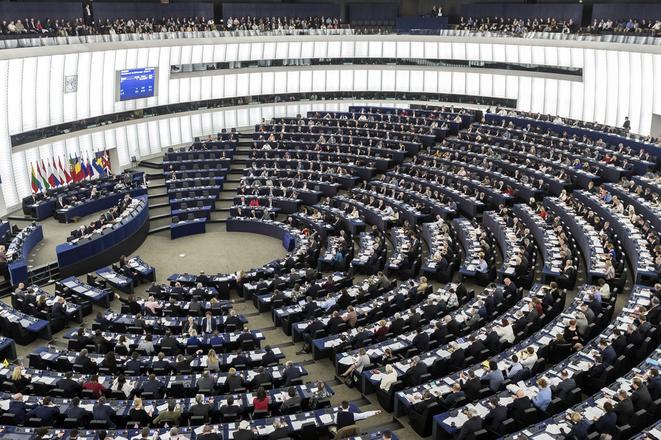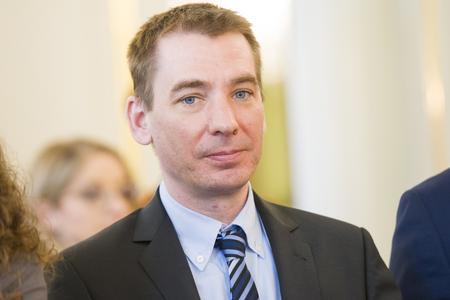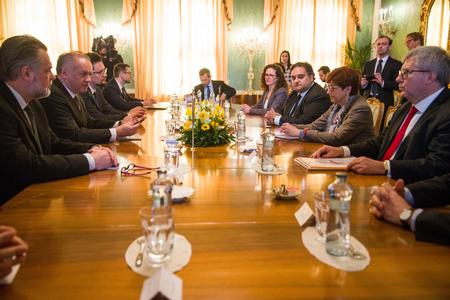Slovakia must ensure thorough, independent and international investigation into the murder of investigative journalist Ján Kuciak. At the same time, the European Union must better protect journalists and whistleblowers.
This stems from the non-legislative resolution approved by the European Parliament on April 19. The document was supported by 573 MEPs, with 27 against and 47 abstaining from the vote.
The EP strongly condemned the murder of Kuciak and his fiancée Martina Kušnírová, and suggests renaming its traineeship for journalists after him.
“The murders of Daphne Caruana Galizia and Ján Kuciak are an attempt to undermine our fundamental values and a blow to the rule of law in the European Union,” said EP President Antonio Tajani, as quoted in a press release.
As he stressed, the EP wishes to strengthen the rights and duty of journalists to stand by free and independent information.
“We owe this to Daphne and Ján and to all European journalists who fight on the frontline every day in defence of our democracy,” Tajani added.
Attention to potential infiltration of organised crime
At the same time, MEPs called on Slovak authorities to deploy all necessary resources to ensure a full, thorough and independent investigation of the double murder, preferably led jointly with Europol, to bring the perpetrators to justice. They also urge them to protect investigative journalists from any form of intimidation and defamation charges and from attacks aimed at silencing them.
Slovakia’s General Prosecutor Jaromír Čižnár meanwhile signed an agreement on creating a joint investigation team with the representatives of Italy, Eurojust and Europol on April 18.
The EP raised the alarm about the potential infiltration of organised crime in the Slovak economy and politics at all levels, the politicised selection of top prosecutors in Slovakia and a number of corruption allegations against top officials, which did not lead to a proper investigation and called for stronger impartiality of law enforcement in Slovakia, as it informed in a press release.
Better protection for journalists and whistleblowers
At the same time, MEPs condemned insulting comments made by some EU politicians towards journalists and insist that all EU states must protect the personal safety and livelihoods of investigative journalists and whistleblowers.
They called for better protection of journalists who are regularly subject to lawsuits intended to censor their work, a permanent EU scheme to support independent investigative journalism, and a draft EU directive to protect whistleblowers.
They also called on the European Commission to address challenges to media freedom and pluralism in the EU, and better monitoring of media ownership concentration.
EP delegation concerned
The approved resolution is based on the visit of an EP delegation to Slovakia in mid-March. As the resolution concerns mostly what the EU and EU bodies should do, the text concentrates on two important issues: the independence of journalists and media and the protection of journalists and the corruption and necessary steps to improve control over EU funds, said Benedek Jávor, Hungarian MEP who was a member of the delegation.
In his opinion, the text concentrates more on the former topic, even though the corruption and misuse of EU funds is similarly important.
“There are strong signs that the murder of Ján Kuciak was a consequence of his work regarding corruption and misuse of EU funds in Slovakia,” Jávor told the journalists in early April.
These problems do not occur only in Slovakia, but also in other member states that are beneficiaries of EU funds and the cohesion policy.
The members are ready to continue monitoring the situation in Slovakia when it comes to agricultural subsidies. Its co-chair Ingeborg Grässle told journalists during a seminar in Brussels that the complaints have been so strong that they decided to check them out, even if there was no clear evidence.
The members of the EP delegation want to return to Slovakia. Grässle mentioned the autumn. She plans to meet with farmers who complain of dubious practices. One of the possibilities is to go also to Moldava nad Bodvou (Košice Region) where they claim they were also misused.
“We need to work on the basis of proof, not rumours,” Grässle said.




